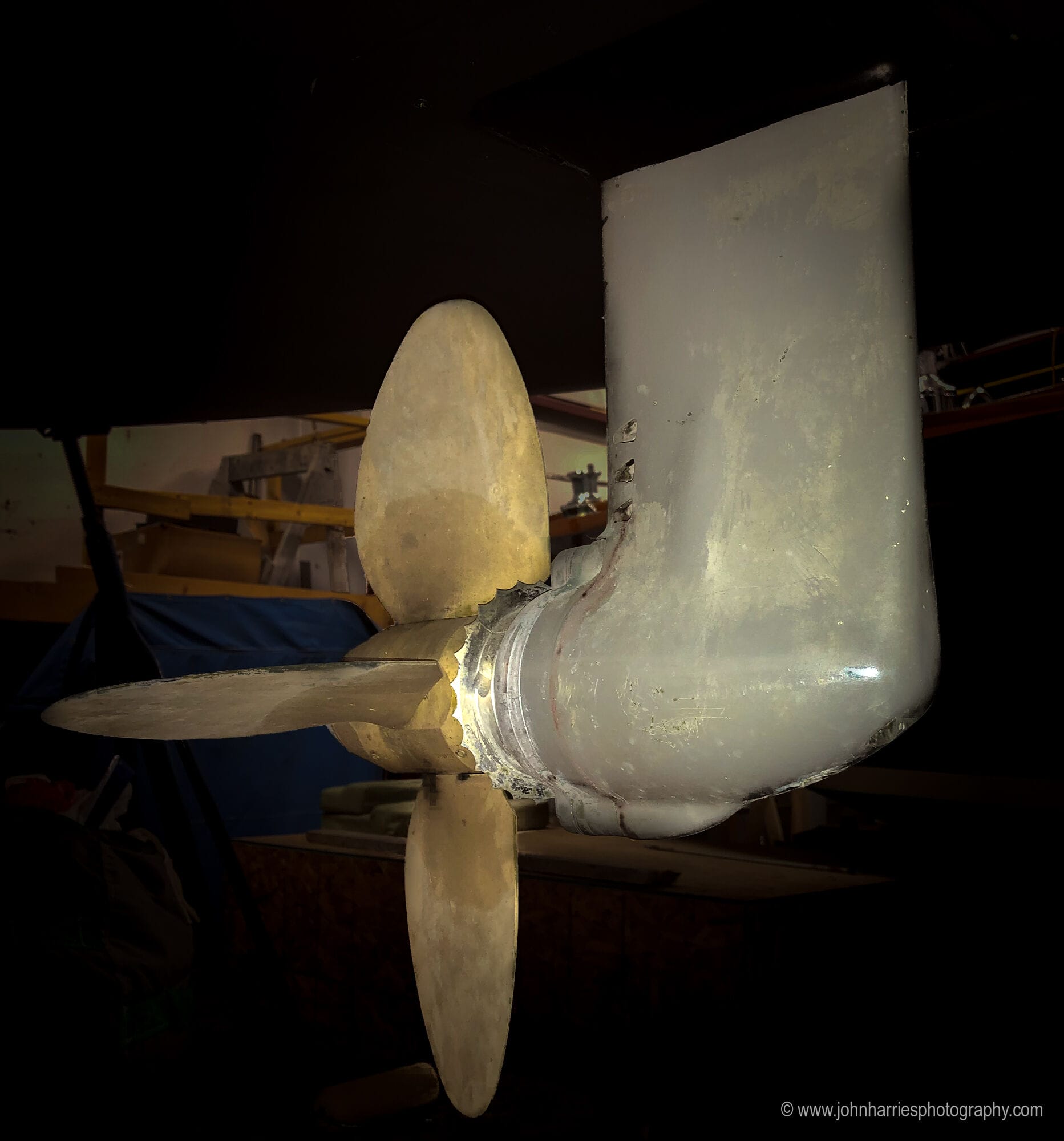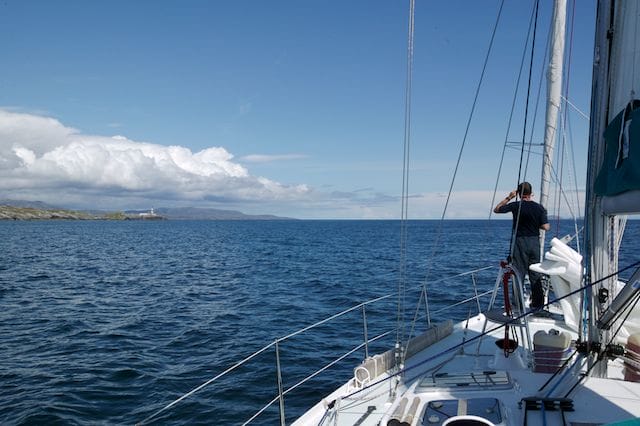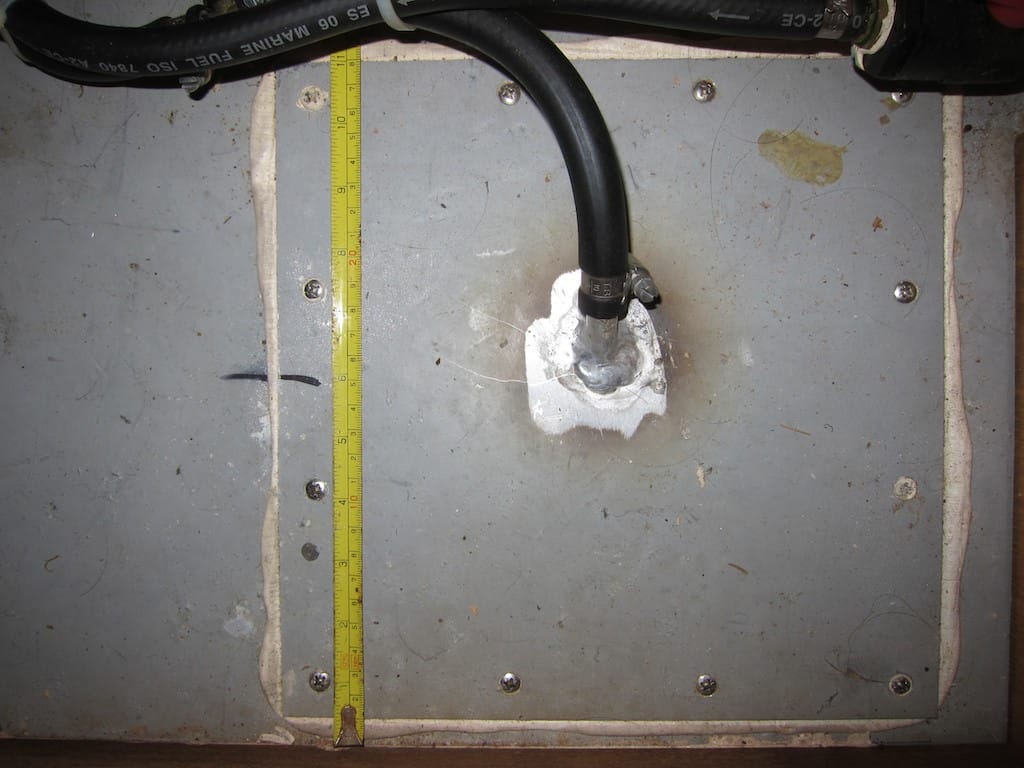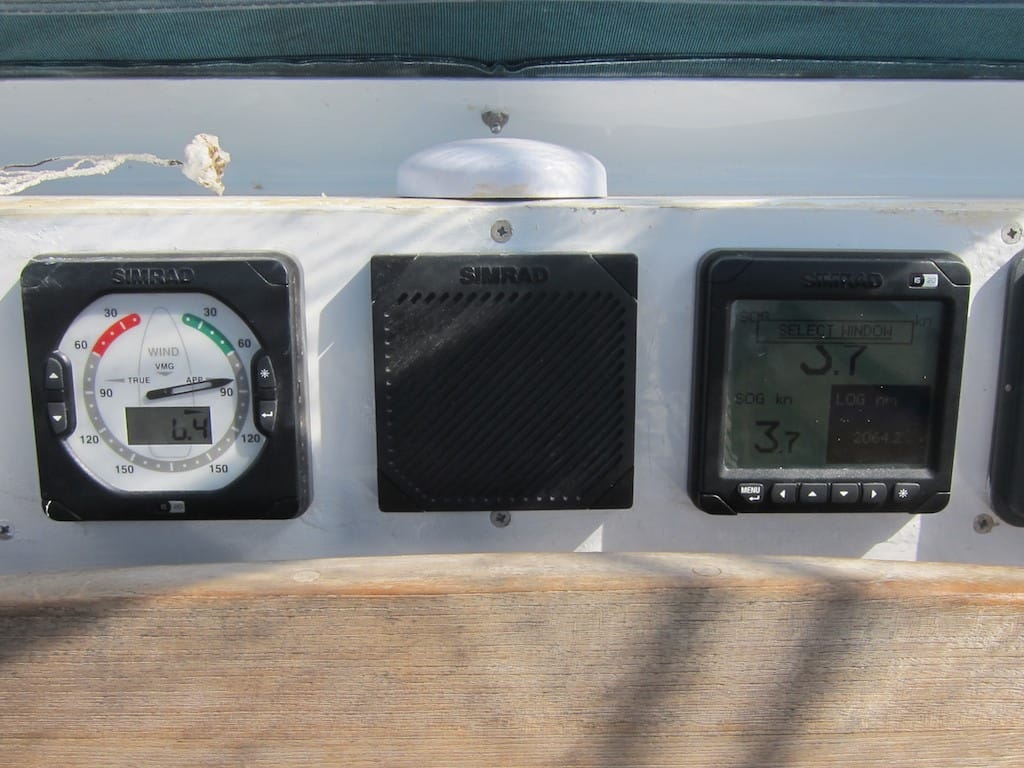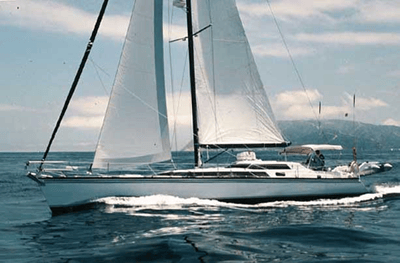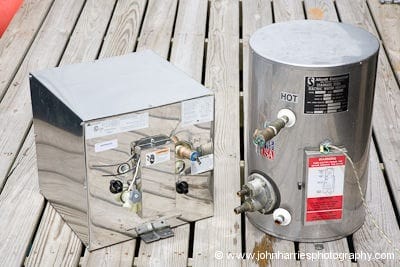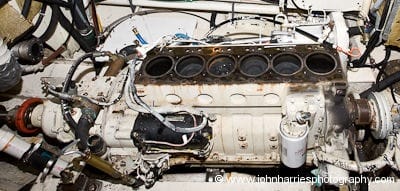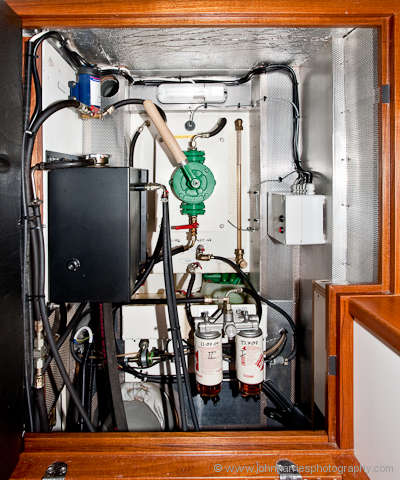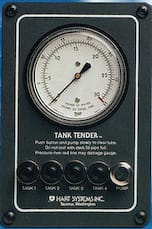Mechanical
Click for TOC or scroll down for details
Articles in this topic:
- Why Are Saildrives Even A Thing?
- Q&A: Should I Get a Watermaker?
- The Best Days Of Our Lives?
- The Bug Is Taking Over
- Feathering Propeller Review
- Q&A: Propeller Shaft Rope Cutters
- A Tale Of Two Water Heaters
- Cummins Engine—Rebuild Or Replace?
- Cummins Marine Diesel Engine, Problems
- Q&A: Have You Ever Looked Into Diesel Outboards?
- Diesel Fuel Day Tank
- Shurflo Pumps
- Northern Lights Generator, Model M643 (5KW)
- Ideal Windlass
- Cummins Marine 6B5 Diesel Engine Manufacturing Problems
- Tank Tender, Hart Systems
-
Why Are Saildrives Even A Thing?
80 CommentsReading Time: 3 minutesMembersRead more: Why Are Saildrives Even A Thing?Saildrives are becoming ever more common on cruising boats. But are they a good idea, or just yet another way to make the builder’s life easier while making the owner’s harder? John has some thoughts.
-
Q&A: Should I Get a Watermaker?
74 CommentsReading Time: 2 minutesFreeRead more: Q&A: Should I Get a Watermaker?John answers an interesting question on the relative benefits of installing a watermaker…or not.
-
The Best Days Of Our Lives?
46 CommentsReading Time: 5 minutesFreeRead more: The Best Days Of Our Lives?Will we get there on time? Those of us with a few years under our belt have seen extraordinary changes in the world of sailing during our lifetimes, not just in terms of the sailing performance of the boats we sail, but also in their comfort and safety, which in turn generates the confidence for […]
-
The Bug Is Taking Over
41 CommentsReading Time: 4 minutesFreeRead more: The Bug Is Taking OverFollowing our arrival in the Canary Islands last autumn we watched an endless stream of yachts line up at the pontoon alongside the boatyard, all of them with fuel contamination problems. In my experience, it’s usual to find that in cases like this the outbreak can be isolated to one or two suppliers who have […]
-
Feathering Propeller Review
57 CommentsReading Time: 5 minutesFreeRead more: Feathering Propeller ReviewWhen we took delivery of our new OVNI 435 in 2008, we decided to stick with the standard 3 bladed propeller, partly for reasons of cost (we were running out of cash!). But on all of my previous boats I’d had either a folding or feathering prop, and fully intended to fit one to Pèlerin […]
-
Q&A: Propeller Shaft Rope Cutters
22 CommentsReading Time: 2 minutesFreeRead more: Q&A: Propeller Shaft Rope CuttersQuestion: Do you have a rope cutter? I ask because we are thinking of fitting an Ambassador Stripper (stainless) to a new build alloy [aluminum] yacht with an alloy sterntube, and we wonder if it is possible to get the two to live happily together.
-
A Tale Of Two Water Heaters
28 CommentsReading Time: 2 minutesFreeRead more: A Tale Of Two Water HeatersLast year our venerable and functional 9 gallon Allcraft water heater (on the right) finally bit the big one after 15 years of faithful service. And, wouldn’t you know it, Allcraft had gone out of business.
-
Cummins Engine—Rebuild Or Replace?
17 CommentsReading Time: 2 minutesFreeRead more: Cummins Engine—Rebuild Or Replace?Initially we were firmly in the rebuild camp, as were most of the experts we consulted. After all, at 6000 hours our engine is, in the words of David in his comment, “[a] baby and has many hours running [still] available”. Rebuilding would also save all the expense and aggravation of changing all kinds of […]
-
Cummins Marine Diesel Engine, Problems
29 CommentsReading Time: 2 minutesFreeRead more: Cummins Marine Diesel Engine, ProblemsEarly failure of a Cummins M92B engine installed in a expedition sailboat.
-
Q&A: Have You Ever Looked Into Diesel Outboards?
1 CommentReading Time: < 1 minuteFreeRead more: Q&A: Have You Ever Looked Into Diesel Outboards?Question: Have you ever looked into diesel outboards?
-
Diesel Fuel Day Tank
9 CommentsReading Time: 3 minutesFreeRead more: Diesel Fuel Day TankPolaris, the sailboat we looked after for a month in Greenland, is fitted with a diesel day tank that’s installed so the bottom of the tank is higher than the intake on the main engine and Refleks heater. (The Webasto heaters require a combined metering and lift pump, so their position, relative to the tank, […]
-
Shurflo Pumps
3 CommentsReading Time: < 1 minuteFree -
Northern Lights Generator, Model M643 (5KW)
3 CommentsReading Time: < 1 minuteFree -
Ideal Windlass
4 CommentsReading Time: < 1 minuteFree -
Cummins Marine 6B5 Diesel Engine Manufacturing Problems
0 CommentsReading Time: 2 minutesFreeRead more: Cummins Marine 6B5 Diesel Engine Manufacturing ProblemsOil pan bolts that were stripped during manufacturing at Cummins take three attempts to fix.
-
Tank Tender, Hart Systems
10 CommentsReading Time: 2 minutesFreeRead more: Tank Tender, Hart SystemsOur Tank Tender from Hart Systems is 20 years old and one of the few pieces of original equipment left on Morgan’s Cloud.

